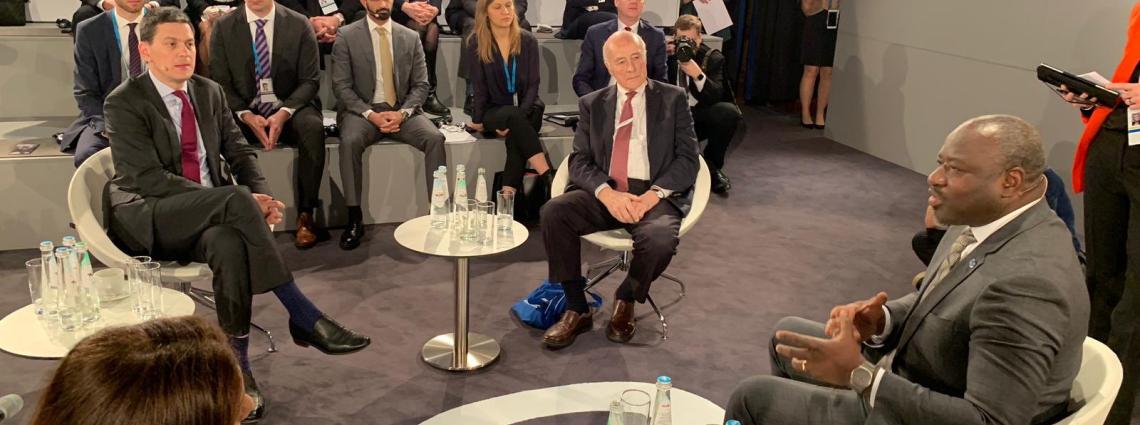Future of diplomacy discussed at Munich Security Conference
During a 16 February Munich Security Conference (MSC) townhall session on the future of diplomacy,
CTBTO Executive Secretary Lassina Zerbo heralded the importance of science diplomacy. He argued that science is a sphere where one easily finds a common denominator -- it cuts across boundaries.
The Comprehensive Nuclear-Test-Ban Treaty (CTBT) is a prime example of great scientific cooperation to monitor against nuclear testing, said Zerbo. CTBTO Executive Secretary argued that we underestimate the power of science. It is a much more immersive environment but it needs hard work to extract “the flame from the sparkle,” he said.
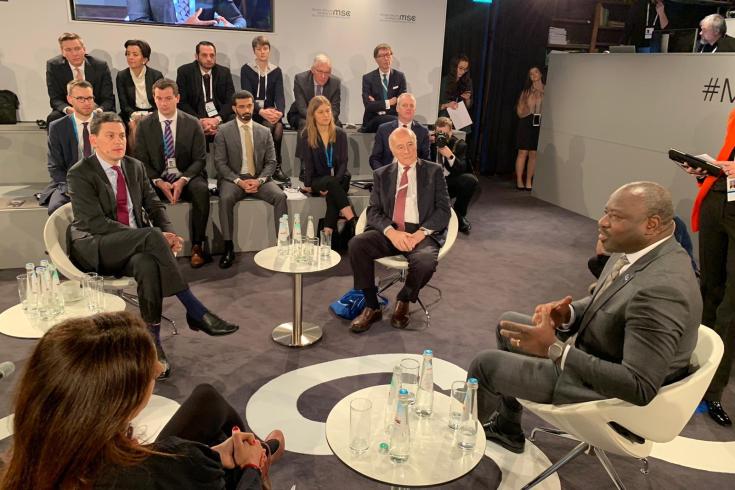
Lassina Zerbo participating in the MSC Townhall session on Future of Diplomacy
Zerbo stressed importance of educating the next generation to promote and support multilateralism.
He highlighted the engagement of youth movements, specifically the CTBTO Youth Group (CYG), as an effective vehicle to advance the disarmament and non-proliferation agenda.
To succeed in the diplomatic sphere today, it is “key to engage in the diplomacy of many to many -- this is exactly what the CYG do in its advocacy for the CTBTO,” explained Zerbo.
The CTBTO head argued that we need to look at diplomacy from a less narrow perspective. “In the current multidimensional world, the tools of diplomacy need to be rethought. States should not just be supportive of multilateralism but be also willing to pay the costs it imposes,” he said.
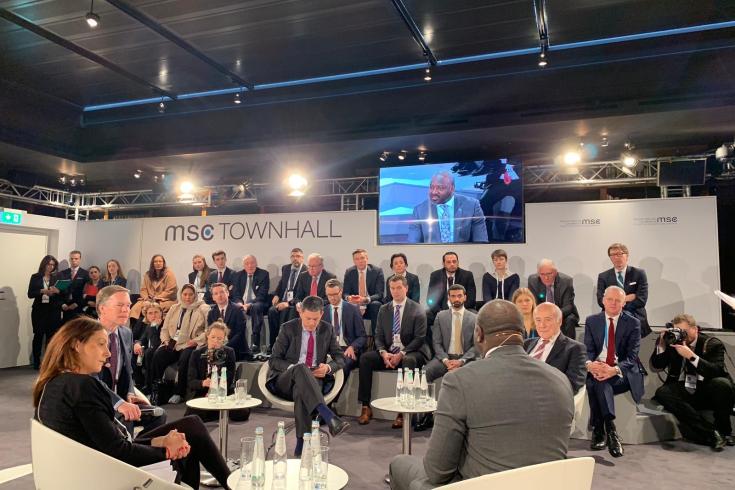
Participants in the MSC Townhall session on Future of Diplomacy
The townhall session, which aimed to tease out the various challenges and possible solutions for diplomacy in a 21st century world facing a rise in transnational threats from terrorism, to pandemics to nuclear proliferation to the detrimental impact of cyber aggression, was moderated by Cathryn Clüver Ashbrook, Executive Director of the Future of Diplomacy Project at Harvard University.
The interactive discussion session also included the following panellists: Hassan Al-Thawadi, Chairman of the 2022 FIFA World Cup; Professor Nicholas Burns, Harvard University; German former football player Philipp Lahm, CEO of Phlipp Lahm Holding GmbH; David Milliband, CEO of International Rescue Committee; Professor Joe Nye, Harvard University; and Nathalie Tocci, Director of the Instituto Affari Internazionali. The panellists in this broad and dynamic session engaged in the concept of “3-D diplomacy” from various perspectives, including sport and science.
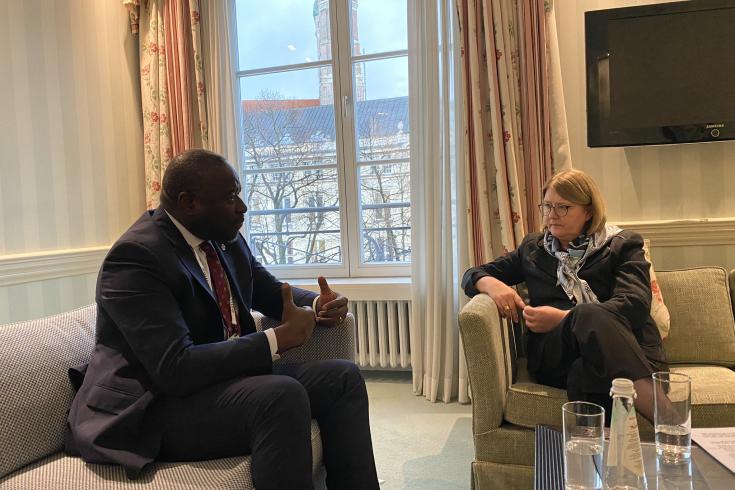
Lassina Zerbo meeting with German State Secretary of the Ministry of Foreign Affairs Antje Leendertse

President Emmanuel Macron of France with ES Zerbo
On the opening day of the MSC, Zerbo was welcomed by German State Secretary Antje Leendertse and discussed Germany’s important role as co-chair of the CTBT Article XIV conference and as a leading member of the Alliance for Multilateralism.
During the Munich Security Conference, which took place from 14-16 February, Executive Secretary Zerbo met with various state leaders and ministers, thanking them for their support to the work of the CTBTO, including: French President Emmanuel Macron; Chinese Foreign Minister Wang Yi; Russian Foreign Minister Sergey Lavrov; Speaker of the U.S. House of Representatives Nancy Pelosi; Canadian Prime Minister Justin Trudeau; Kazakh President Qasym-Jomart Tokayev and Austrian Foreign Minister Sebastian Kurz amongst others.
At the MSC, Zerbo also thanked Josep Borrell, High Representative of the EU for Foreign Affairs and Security Policy, for the EU’s unwavering support to the CTBT. On the sidelines of the MSC, Zerbo also met with some of “The Elders” (including Ban Ki Moon, former UN Secretary-General and former South Korean Foreign Minister; Lakhdar Brahimi, former Algerian freedom fighter and former Foreign Minister; and Gro Brundtland; former Prime Minister of Norway) — a group of independent global leaders working together for peace, justice and human rights — to discuss their possible support to the universalisation of the CTBT.
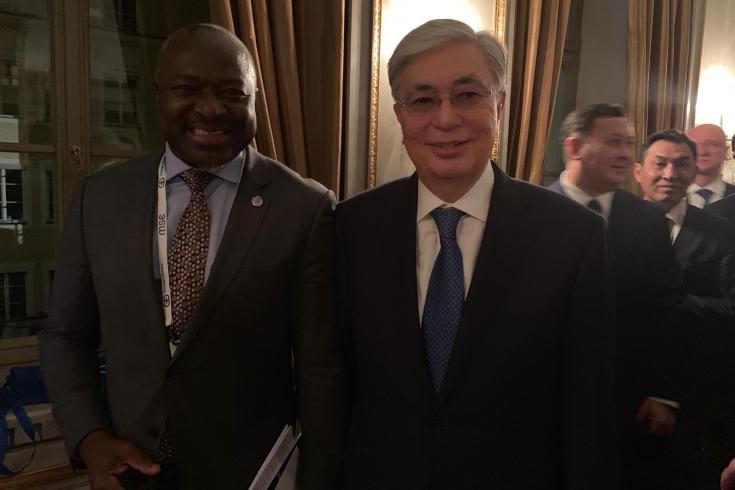
President Qasym-Jomart Tokayev of the Republic of Kazakhstan with ES Zerbo
18 Feb 2020
